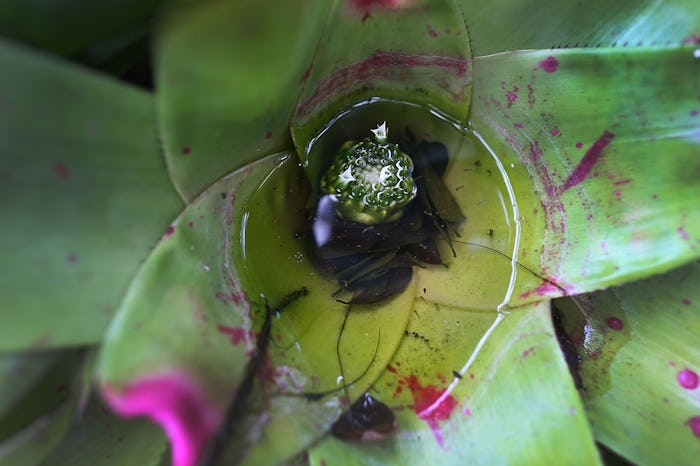Life

What Makes The Zika Mosquitoes Different From Other Mosquitoes? There Are Two Carriers
It looks as though summer is just around the corner, and while that generally means all good things (longer days, warmer weather, flip flops), this year there is a distinctive downside to summer. The warmer weather brings mosquitoes, and some mosquito bites could potentially carry the Zika virus, a dangerous new strain of illness that can cause microcephaly, Guillane-Barre Syndrome, and other neurological diseases. Many people are scrambling to take extra precautions, but it might help to find out what makes the Zika mosquito different from other mosquitoes?
It turns out there are more than 3,500 types of mosquitoes. Some are completely harmless, like the common Aedes vexans. But there are two different types of mosquitoes that can potentially carry the Zika virus; the Aedes aegypti and the Aedes albopictus. The Aedes aegypti is the mosquito variety most commonly found in tropical and sub-tropical climates, though with climate change issues it is adapting to northern travel. The Aedes albopictus mosquito is native to tropical Asia but has also been introduced to Europe, parts of the Americas, and Africa. Both mosquito types bite during the day and prefer warmer climates.
The Aedes variety of mosquito has two different looks: the Aedes albopictus has a distinctive red body, while the Aedes aegypti has a long probiscus with white stripes on its black thorax and legs.
Scientists have been working frantically to try to contain the outbreak of the Zika virus as it passes from warmer climates in the Caribbean and South America to the United States. Millions of genetically-altered mosquitoes were recently released in the Cayman Islands to combat the Zika-infected mosquitoes. These "friendly" mosquitoes were designed by Oxitech, a British biotech company, and released under the care of the Cayman Islands Mosquito Research and Control unit. The males of the Oxitech-designed mosquitoes will not bite or carry infection, but will breed with the female Aedes aegypti. Their offspring should die quickly and with virtually no ill effect on the environment.
While scientists have been researching the Aedes aegypti for the Zika and dengue virus for some time, it was only recently discovered that the Aedes albopictus (or Asian tiger mosquito) could also potentially transmit Zika. In April, the World Health Organization announced that a Mexican lab detected the Zika virus in the Aedes albopictus.
Both species are said to thrive around people and have a particularly strong taste for human blood, which is not true of most other varieties of mosquito. They live in houses, breed in standing water, and multiply easily. And scientists have reason to believe they are moving north.
So this summer, remember to take extra precautions when enjoying the outside (especially pregnant women, small children, and individuals with weakened immune systems, as these are the highest risk members of our communities). Wear light colors and long sleeves, use insect repellent, and take care around standing water. As the battle against Zika mosquitoes wages on, it's important for people to proactively protect themselves to also help protect others who might be more vulnerable, like pregnant women, in their communities.